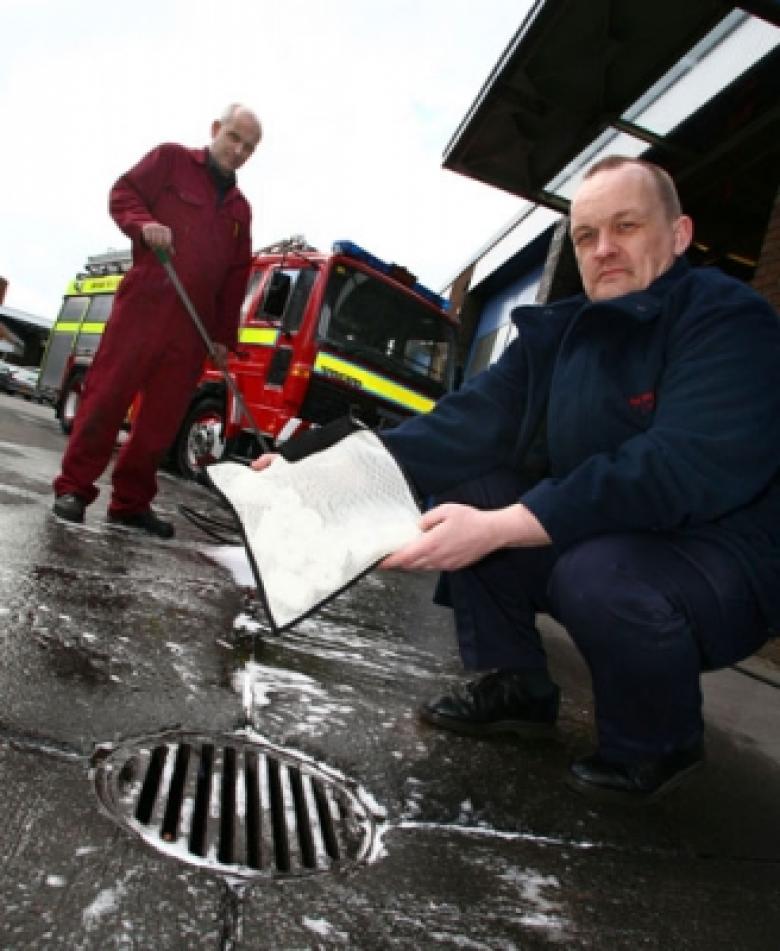
Shropshire Fire and Rescue Service is believed to be the first brigade in Britain to meet the tough high standards for environmental management under the British Standards Institute's ISO 14001.
The Shropshire brigade from its Shrewsbury HQ achieved the international standard by introducing a range of environmental initiatives – including recycling the oil filters used on fire appliances - covering all its 23 fire stations spread out across the county.
Over the past year non uniform staff have been investigating how they can reduce their "carbon footprint" by reviewing the environmental impact of firefighting activities and how Shropshire Fire and Rescue Service is run.
During the project, personnel had to identify effective improvements and monitor their effectiveness.
Benefits have ranged from introducing bio fuels into the fire vehicles fleet to recycling oil filters, preventing oil spills and improving drainage to minimise water pollution from washing fire appliances. Fire stations are also now in the process of being insulated and draught proofed to save energy.
Shropshire's fire stations have been changed over the past few years from gas to electricity for heating as it is more efficient.
The brigade has run an efficient waste management scheme for the past five years where all rubbish is taken to a recycling centre in Telford. But now they have looked at everything that is thrown away to see if savings can be made.
Oils are now recycled along with oil filters where not only the oil is removed and re-used but also metal inside the 80 oil filters used on 50 fire appliances each year. A storeroom floor where oil is stored has been waterproofed to capture any spills.
"We decided that the ISO 14001 certificate was going to mean more to us than just putting information down on paper. We were going to take action to reduce waste, make our fire service more energy efficient and make cost savings wherever possible for the public purse," said Andrew Kelcey, Head of Resources at Shropshire Fire and Rescue Service.
"Working to the ISO standard has enabled us to clearly understand our environmental impact and take practical and cost effective steps to minimise harm while providing an excellent service to our community.
"Too often simple and effective measures such as insulation, draught proofing and waste management are overlooked in favour of more glamorous schemes such as wind turbines.
"This system ensures we identify the most significant issues and address them effectively – the same approach we take across the service and which has enabled us to perform so well in recently published performance audits," added Mr Kelcey.
The environmental management system was developed in-house with support from Groundwork Black Country and is built on the service's existing ISO9001:2000 quality management system which has been in place since 2006.




